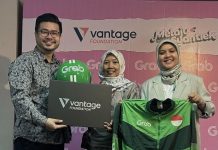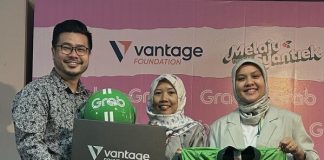More than two in five (44 per cent) Malaysia-based workers have ranked “strong management‟ as the most important EVP (employee value proposition) factor from a list of 16. Malaysia is the only market in Southeast Asia where “strong management‟ is being ranked in the top five most important EVP factors that respondents look for in an ideal employer.
Randstad – one of the world’s largest human resource solutions agencies – today released the findings of its annual Employer Brand Research in Malaysia. Commissioned by Randstad, the independent global study is the most representative employer brand research that explores the factors influencing and motivating employees‟ and job seekers‟ search for new career opportunities.
Ms. Jaya Dass, Managing Director of Randstad Singapore and Malaysia said, “The Randstad Employer Brand Research helps employers gain a better understanding of the actionable steps they can take to enhance their talent acquisition and employee retention strategies. When organisations place employer brand high on their corporate agenda, they will be able to experience a positive impact to their people strategy, such as more loyal employees and faster access to skilled candidates.”
When it boils down to what really matters to the workers in Malaysia, “attractive salary & benefits‟ remains the most important factor (64 per cent), followed by “healthy work-life balance‟ (49 per cent). It is notable that Malaysia is the only market in Southeast Asia that ranked “strong management‟ within its top five most critical EVP when looking for an ideal employer, with 44 per cent of respondents considering it important to them.
Further supporting the importance of good management to an employee, the study also found that 29 per cent of respondents would consider leaving their employers because of „poor leadership‟. Ms. Dass said, “People want to work in an organisation which is being led by a strong and capable management team, especially one that is able to drive the company forward in the fourth industrial revolution, during a period of changing economic and political landscapes. When leaders are transparent about matters such as profitability and challenges, it gives workers and potential employees a sense of stability, as the leaders have a clear vision of what they need to do to drive the business forward.”
The research highlighted a seven-point gap between respondents‟ expectations of “healthy work-life balance‟ and what companies in Malaysia are perceived to offer. Companies looking to attract talent not only need to develop new initiatives to promote work-life harmony, but also effectively communicate the benefits of these initiatives to their workforce. Thirty (30) per cent of respondents cited “healthy work-life balance‟ as one of the top three reasons why they would apply for a job in a small-and-medium enterprise or start their own business.
The top three reasons cited by 44 per cent of respondents for applying to a multinational corporation are centred around financial stability, such as the company’s financial health, attractive salary and benefits as well as job security. Ms. Dass adds, “Most of us spend approximately one-third of our prime years working, and it has become an integral part of our lives. People want to work for companies that can support their professional growth and care for their overall well-being. Some examples of work-life benefits that employees often look for are flexi-work arrangements, adequate parental leave and childcare services, as well as counselling services. Companies that provide these meaningful benefits will be able to build a healthier, productive and loyal workforce.”
The Employer Brand Research also pointed out that while Millennials and Gen-Z workers are eager to learn and develop their skills quickly, Gen-X employees and Baby Boomers are more focussed on seeking career progression opportunities. The desire for high-ranking positions is unique and highly observed in Asian cultures, where people tend to equate job titles to the level of respect they expect to receive from others. However, these attitudes towards job titles are expected to change soon. “Specialist jobs in engineering, analytics and software development will soon do away with clear-cut job titles that indicates the employee’s tenure. Instead, as more workers are expected to collaborate with different teams within the company, employers will prioritise technical skills over titles. We expect employers to focus more on the employee’s skills rather than their most recent job titles during interviews,” Ms. Dass explains.
When seeking an ideal employer, Gen-Z workers (42 per cent) and Millennials (34 per cent) want to work with companies that can provide them with upskilling opportunities. “The younger generation of talent is aware of the skill gaps that exist in the workforce today. They are looking for ways to build their competencies or acquire new skills so that they can receive better career opportunities. Employers that want to stay competitive with a talented workforce would also need to invest in developing their own people. The research has shown that job seekers are increasingly attracted to firms that provide professional development programmes, such as in-depth training curriculums, on-the-job training and internal mobility opportunities. If workers are not equipped with the right skills for the job, employers will not be able to optimise workplace performance and productivity,” Ms. Dass concludes.
The 2019 Randstad Employer Brand Research is the most representative and independent employer brand research in the world, reaching out to more than 200,000 respondents across 32 markets, including 2,504 people based in Malaysia.





















